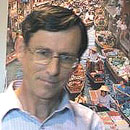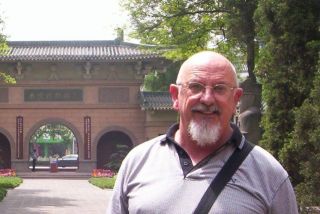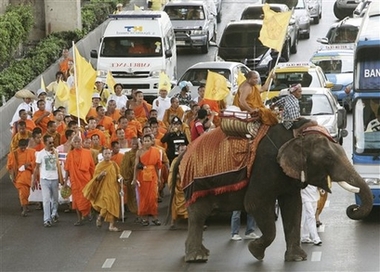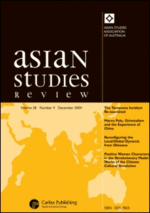Analysis
 |
THAILAND'S 2007 CONSTITUTION AND RE-EMERGING DEMOCRACY: WILL POLITICAL POLARIZATION CONTINUE?By Sarah Bishop, Project Manager National Thai Studies Centre, The Australian National University sarah.bishop@anu.edu.au |
|
The 2007 Thailand Update on 31 August at the Australian National University focused on democracy’s prospects in Thailand. The keynote address was delivered by Professor Suchit Bunbongkarn, a Senior Fellow at the Institute for Security and International Studies (ISIS), Thailand. Professor Suchit began by cautioning against over-exuberance at the recent passing of the new constitution put forward by the Constitution Drafting Assembly, a body indirectly appointed by the junta that took power in coup in September 2006. Noting wryly that Thai history has shown there to be very little difference between permanent and interim constitutions – sometimes the latter last longer than the former – Suchit explained that the constitution alone cannot achieve lasting change. Only major reform of political institutions and a strengthening and institutionalisation of political parties can achieve this. The narrow endorsement of the constitution in the August referendum was a sign of the ongoing polarisation of society. Suchit interpreted the ‘no’ vote as a comment on the illegitimacy of the coup and Thaksin’s continuing popularity. While the ‘yes’ vote was a rejection of Thaksin, it also reflected a desire for a smooth return to parliamentary rule. With regard to Thaksin’s popularity, Suchit suggested
it would continue, given that, despite his corruption, Thaksin was nonetheless
the first Thai politician genuinely to take an interest in the rural
poor. He interpreted the strong ‘yes’ vote in the three
southern provinces as a positive sign that although conflict had not
been reduced in the area, the southern provinces at least remained committed
to democracy. |
Professor Suchit believed that the December elections would be characterised by the same polarisation as the constitutional referendum. Cautiously predicting they would lead to a Democrat-led coalition he nevertheless noted that the prospects of the People’s Power Party (which has absorbed a large percentage of members from Thaksin’s Thai Rak Thai party) should not be underestimated. Whichever party wins, instability was likely. A Democrat-led government would, as it had in the past, govern in ‘too democratic’ a manner, allowing too much internal division and producing weak government. On the other hand if the People’s Power Party won Suchit feared there would be no change from Thaksin’s style of ‘too strong’ government. People’s Power Party Leader Samak was notorious for his involvement in the 1976 coup and his close alliance with Thaksin. On the other hand Suchit was optimistic the past twelve months had shown that the military’s future political role would be limited. While able to accomplish a coup the army had shown it was not able to govern. The constitution did not provide a role for the military. He attributed this advancement to increased political consciousness – a ‘positive by-product,’ especially in rural areas, of Thaksin’s leadership – and to division within the military created by its return to politics. |
In conclusion Professor Suchit suggested that the polarisation at the heart of the turmoil of the last twelve months was more complex than often thought, involving not only the anti-Thaksin, pro-Thaksin split but also tension between Bangkok and the north and north east; Bangkok and the south; rural and urban populations; and military supporters and anti-military groups. He had no doubt this polarisation would continue but suggested that this was not necessarily a negative prediction – polarisation is a natural consequence of democracy. The violence however would be stopped and Thailand would survive. Links:
|

 |
SOUTHERN THAILAND - CONFLICT INTENSIFIESby John Funston, Executive Director, National Thai Studies Centre John.Funston@anu.edu.au |
|
After the September 2006 coup Prime Minister Surayud Chulanont named conflict in the Muslim south a priority, and immediately distanced himself from the heavy-handed actions of his predecessor. He publicly apologised for the violence under Thaksin, promised to drop ‘blacklists’ of Islamic teachers, improved relations with Malaysia, and stressed the importance of resolving conflict by peaceful means. But the expected peace dividend has not materialised. Some 600 lives were lost in the first half of 2007, compared with 900 for all the preceding year. Attacks on security forces became increasingly effective. On 9 May seven soldiers were victims of a powerful roadside bomb, then shot execution-style by attackers at point-blank range – the largest number of deaths suffered by security forces in a single incident to that point; in similar attacks 12 more soldiers were killed in an incident in May, and seven in June. Sectarian aspects of the conflict escalated further. More aggressive military actions by para-military Rangers and Village Defence Volunteers led to regular incidents in which Muslim deaths were blamed on the government, and insurgents then exacted revenge by killing Buddhists. Both Muslims and Buddhists staged regular demonstrations demanding the government protect their communities. Levels of brutality reached new highs. |
The killing of nine Buddhist commuters in mid March, shot at point-blank range after insurgents armed with assault rifles forced a minibus off the road, marked yet another escalation, and went together with another spate of around a dozen beheadings. Teachers were killed in front of students in June and August, and arson attacks carried out on 38 schools in less than three months between March and May (compared to 37 for all of 2006). And in early August gunmen entered a sub-district health centre, killing two nurses, the first attack ever on a health centre. The escalation of insurgent actions – strongly criticised in a detailed report from the US-based Human Rights Watch in early August – represents a rejection of post-coup conciliation efforts. Security forces have in turn responded by aggressive search missions, |
arresting over 2,000 Muslims since mid June. Most have been held for up to 30 days under Emergency Decree regulations, then freed or sent for ‘occupational training’, leaving around 300 currently under detention. Officials claim success in disrupting insurgent attacks, and obtaining valuable intelligence. Large scale insurgent operations have decreased, but the overall level of violence has not. And even though security forces have tried to avoid egregious human rights violations of the past, their actions have caused deep resentment. The attempt to deal with the south through conciliatory means has been abandoned, and a new government after elections later this year will have to deal with the consequences. Links: Human Rights Watch Thailand: Separatists Target Civilians
for Attack http://hrw.org/english/docs/ |
Graduate of the month
 Bill
Lakos (wklakos@utas.edu.au)
was working as a workplace training consultant when he ‘chucked
it all in’ after a holiday in India in 1999, and decided to do
philosophy at uni. The University of Tasmania has a strong Buddhist
philosophy programme which includes study at a Tibetan university in
India, and Bill eagerly took up this opportunity in 2002, extending
his stay and subsequently making other visits to India. Bill
Lakos (wklakos@utas.edu.au)
was working as a workplace training consultant when he ‘chucked
it all in’ after a holiday in India in 1999, and decided to do
philosophy at uni. The University of Tasmania has a strong Buddhist
philosophy programme which includes study at a Tibetan university in
India, and Bill eagerly took up this opportunity in 2002, extending
his stay and subsequently making other visits to India. Then he had a change in academic direction. As Bill explains, “During an ‘accidental’ visit to Vietnam I was astounded at how important ancestor worship was.” Since that time Bill has been concerned with how we actually understand other cultures. He is working on a PhD thesis in the School of Asian Languages and Studies that explores how China and Chinese culture is conventionally understood by the West through the paradigm of Confucianism. Bill’s thesis is that a particular characteristic of China’s culture, and one central to the entire development of Chinese civilisation for over five millennia, has been its serious concern with ancestors, heirs, family and kin. He suggests that an alternative to looking at Chinese culture through the lens of Confucianism is to understand the cluster of concepts centred on the practice of Chinese ancestor worship, including filial piety and li (ritual). |
Such a paradigm shift and a more nuanced understanding of Chinese traditional culture could well impact on many important and contemporary ‘China’ debates, including the relationship of what is traditional culture to Chinese ‘modernity’. Bill has recently presented papers at the recent CSAA conference in Brisbane, and the ICAS5 conference in Kuala Lumpur. He has an article on Chinese nationalism being peer reviewed, hopefully to be published by the London School of Economics. Although Bill loves the research climate at UTAS, he does miss the opportunity for contact that he might otherwise have at a mainland University, and invites any-one interested in similar studies to contact him for a chat, and possibly to collaborate in a research project. Links
|

Website of the month
| http://bulletin.ninemsn.com.au/galleries/default.aspx?subsectionid=75013&slide=9 The Bulletin magazine has published a gallery of photographs
from Dick Woolcott’s new book, Undiplomatic Activities (Scribe,
2007). It also carried (in the 4 September edition) an extract from
the book in which Woolcott demonstrates the dangers for diplomats and
politicians in using interpreters. Another demonstration of the importance
of teaching Asian languages! http://bulletin.ninemsn.com.au/galleries/default.aspx?subsectionid=75013&slide=9 |
Recent article of interest
|
|

Did you know?
|
A new centre at The Australian National University will help the nation tap into the emerging influence and importance of India, Pakistan and their neighbouring countries. The South Asia Centre will be led by Dr McComas Taylor and is part of the ANU College of Asia and the Pacific. The new body will draw on the University's existing South Asian strengths and build up teaching and research around the fields of history, politics, religion, languages, culture and security studies. See http://asianstudies.anu.edu.au/wiki/index.php/South_and_West_Asia_Centre |

Diary dates
| CINEMA INDIA: THE ART OF BOLLYWOOD, 6 June - 11 November, Adelaide. Cinema India explores the phenomenon of Bollywood, primarily through film advertising materials - posters, hoardings, lobby cards and song books - from the 1930s to the present day. Alongside will be some dazzling Bollywood costumes as well as original film trailers and song and dance sequences featuring the most celebrated stars of Indian cinema. Wednesday 6 June - Sunday 11 November 2007 The Powerhouse Museum, 500 Harris Street, Ultimo, Sydney http://www.powerhousemuseum.com/exhibitions/cinema_india.asp OZASIA Festival, 22 September to 6 October, Adelaide. All sorts of events: see http://www.ozasiafestival.com.au INDIA: Sixty Years of Indian Democracy, 25 September, Melbourne. Author of numerous works on India and its democratic governance, Professor Niraja Jalal will share her expertise on the past, present and future of India's political development. Tuesday 25 September 2007, 6.30 pm start, Yasuko Hiraoka Myer Room, Sidney Myer Asia Centre, University of Melbourne. To reserve a seat, please send an email to Asialink Events events@asialink.unimelb.edu.au with "Niraja Jalal" in the subject line. NIGHT OF STORIES: With Waleed Aly - People Like Us, 27 September, Melbourne. Waleed Aly is the board member of the Islamic Council of Victoria and lecturer at Global Terrorism Unit at Monash University. Aly will be joined in conversation by Dr. Ian Coller from the School of Historical Studies, University of Melbourne. Thursday 27 September 2007, 6.30pm for small iftar, 7pm to start. Yasuku Hiraoko Myer Room, Sidney Myer Asia Centre, University of Melbourne. To reserve a seat, please send an email to Asialink Events events@asialink.unimelb.edu.au with "A Night of Stories-Aly" in the subject line. CHINA: CONFERENCE ON MIGRATION AND SOCIAL PROTECTION, 25 to 26 September, Beijing. Monash University's Asian Business and Economics Research Unit together with the Institute of Population and Labour Economics at the Chinese Academy of Social Sciences and the Renmin-Monash Advanced Centre for Economic Studies are staging an international conference to explore issues such as: labour market integration and social protection, migrant participation in social security schemes, migrant alternatives to state-sponsored social protection, migrant working conditions, salaries and wage arrears, and responsibilities of government in the provision of social protection. See www.buseco.monash.edu.au/units/aberu/Conference2007/index.php or contact Dr Ingrid Nielsen Ingrid.Nielsen@buseco.monash.edu.au SOUTH ASIA UPDATE AND POVERTY DYNAMICS CONFERENCE, 27 and 28 September 2007, Canberra. This discussion of issues and events in India and South Asia aims to enhance policy makers’ knowledge of trends and developments in South Asia, and to provide networking opportunities for exploring economic, social and political dynamics in the region. Speakers include renowned experts from the World Bank, the Asian Development Bank, the Australian Strategic Policy Institute and regional agencies as well as specialists based in Australian and overseas universities. For further information contact Tracy Lee t.lee@latrobe.edu.au or visit the conference website: www.sueztosuva.org.au/south_asia/sa_research_facility.php DESPOTS, DEMOCRATS AND DISCONTENTS: Democratic Prospects and International Policy Responses in the Middle East and South Asia, 2 October Sydney. The Sydney Democracy Forum and the Lowy Institute for International Policy are hosting this event, with the following speakers: Anthony Bubalo (Lowy Institute for International Policy), Professor Niraja Gopal Jayal (Jawaharlal Nehru University) and Professor John Keane (Westminster University/University of Sydney) 2 to 5 pm at the Lowy Institute for International Policy, 31 Bligh Street, Sydney RSVP: r.mueller@econ.usyd.edu.au by 25 September. SIXTY YEARS OF INDIAN DEMOCRACY: Achievements and Prospects 2 October, Sydney. The Sydney Democracy Forum, with Sydney Ideas, presents a lecture by Professor Niraja Gopal Jayal (Jawaharlal Nehru University) at the Seymour Centre, corner of City Road and Cleveland Street, University of Sydney, 7pm. Bookings are essential: phone (02) 9351 7940. ASPIRE: WATER AND SANITATION IN THE ASIA-PACIFIC REGION: Opportunities, Challenges and Technology, Perth, 28 October - 1 November 2007. The Australian Water Association, in conjunction with the International Water Association is organising this conference, which will focus on design, operation, maintenance and management of water and wastewater systems. Innovations in the field, case studies on safe and reliable systems for removal of nutrients, water reuse, and methods of better operation will also be discussed at the conference. There will be specific emphasis on issues facing the Asia-Pacific Region. Perth Convention & Exhibition Centre. See http://www.awa.asn.au/AM/Template.cfm?Section=ASPIRE_2007&Template=/CM/ContentDisplay.cfm&ContentID=4883 |
ASIA PACIFIC REGION:
SOCIETIES IN TRANSFORMATION conference, Georgetown (Penang) Malaysia,
19-22 November, 2007. The region is seemingly now more integrated,
with unprecedented levels of tourism, migration, and economic and cultural
linkages. But, are the nations of the region, and their populations,
more divided, united or are they fundamentally unchanged over the past
two decades? These are questions to be raised in a conference co-sponsored
by the School of Social Sciences, Universiti Sains Malaysia (USM) and
the Centre for Asia Pacific Social Transformation Studies (CAPSTRANS),
University of Wollongong, Australia The conference website link is at:
17th NEW ZEALAND ASIAN STUDIES SOCIETY (NZASIA) CONFERENCE, Otago, 22-25 November 2007. This will be an open, multidisciplinary conference. Participants are invited to submit panel or paper proposals presenting original research on any Asian-related topic. Proposals for panels are welcome. Paper abstracts, single-spaced and no longer than 200 words, must be submitted before 1 June 2007 to nzasia.conference@stonebow.otago.ac.nz Full conference details can be found at http://www.nzasia.org.nz 'OCCUPYING 'THE OTHER': AUSTRALIA AND MILITARY OCCUPATIONS FROM JAPAN TO IRAQ'. 29-30 November 2007, Wollongong. Call for Papers This symposium sponsored by the Japan Foundation, the Centre for Asia Pacific Social Transformation Studies (CAPSTRANS) at the University of Wollongong and Monash University aims to bring together journalists, public commentators and scholars investigating Australian involvement in foreign military occupations. It will pose the question: ‘How are we to understand this ongoing military commitment to the region, and how can the occupation of Japan contribute to understanding this commitment and, more generically, the role of military occupations today?’ Deadline for the submission of paper is 31 July 2007. Contact Dr Christine de Matos cdm@uow.edu.au
CRITICAL HAN STUDIES SYMPOSIUM & WORKSHOP,
24-27 April 2008, Stanford University. Call for Papers. Han
is a colossal category of identity that encompasses ninety-four percent
of the population of mainland China, making it the largest ethnic group
on earth. The first-ever Critical Han Studies Symposium & Workshop
seeks to bring this fascinating area of research to the attention of
a broader, international, and interdisciplinary community of scholars.
Participants will help develop materials to be published in two path-breaking
volumes: Critical Han Studies, an edited volume, and the Critical Han
Studies Reader, a collection of primary source materials in translation
for which the conference organizers have already secured a provisional
contract. The deadline for paper and panel proposals is 3 December 2007.
For more information contact Professor Thomas S. Mullaney at tsmullaney@stanford.edu
or James Leibold at Latrobe University: http://www.latrobe.edu.au/socsci/staff/leibold/leibold.html
IS THIS THE ASIAN CENTURY? 17th Asian Studies Association of Australia Conference, 1-3 July 2008, Melbourne. The biennial Asian Studies Association of Australia conference is the largest gathering of expertise on Asia in the southern hemisphere. The theme for 2008 invites you to assess how the regions and issues on which you are interested are faring. The ASAA conference is multi-disciplinary and covers Central, South, South-East and North East Asia and the relationship of all of these with the rest of the world. See http://www.conferenceworks.net.au/asaa TRANSITION AND INTERCHANGE Ninth Women in Asia
Conference, 29 September-1 October 2008, Brisbane. The University
of Queensland is hosting the ninth Women in Asia (WIA) Conference, to
be held from 29 September-1 October, 2008. Call for Papers: Contributions
are invited from various disciplines on a large number of themes concerning
the lives of women in Asia. Participants are encouraged to submit proposals
for panels (with 3-4 papers per panel). Individual proposals are also
welcome. Enquiries can be addressed to wia@uq.edu.au |

You are welcome to advertise Asia-related events in this space. Send details to: fbeddie@infinite.net.au
Feedback
What would be useful for you? Human interest stories, profiles of successful graduates of Asian studies, more news about what's on, moderated discussions on topical issues? Send your ideas to fbeddie@ozemail.com.au.
About the ASAA
The Asian Studies Association of Australia (ASAA) promotes
the study of Asian languages, societies, cultures, and politics in Australia,
supports teaching and research in Asian studies and works towards an understanding
of Asia in the community at large. It publishes the Asian Studies Review
journal and holds a biennial conference. ASAA and the Centre for Language
Studies at National University of Singapore also co-publish an annual supplementary
issue of the Centre's fully peer-reviewed electronic Foreign Language Teaching
Journal (e-FLT). See http://e-flt.nus.edu.sg
The ASAA believes there is an urgent need to develop a strategy to preserve,
renew and extend Australian expertise about Asia. It has called on the government
to show national leadership in the promotion of Australia’s Asia knowledge
and skills. See Maximizing Australia's Asia Knowledge Repositioning and
Renewal of a National Asset http://coombs.anu.edu.au/SpecialProj/ASAA/asia-knowledge-book-v70.pdf
Asian Currents is published by the Asian Studies Association of Australia (ASAA) http://coombs.anu.edu.au/ASAA/ thanks to a grant from the International Centre of Excellence for Asia Pacific Studies (ICEAPS) http://iceaps.anu.edu.au. It is edited by Francesca Beddie. The editorial board consists of Robert Cribb, ASAA President; Michele Ford, ASAA Secretary; Mina Roces, ASAA Publications officer; Lenore Lyons, ASAA Council member; and Ann Kumar, Director, ICEAPS.



 The
latest edition of the Asian Studies Review, (Volume 31 Issue
3 2007), the journal of the Asian Studies Association of Australia,
includes articles on the journalism in East Timor; the rise and fall
of Indonesian in Australian schools; development in China’s
Xinjiang province and its security implications; and Thailand’s
war on drugs. See
The
latest edition of the Asian Studies Review, (Volume 31 Issue
3 2007), the journal of the Asian Studies Association of Australia,
includes articles on the journalism in East Timor; the rise and fall
of Indonesian in Australian schools; development in China’s
Xinjiang province and its security implications; and Thailand’s
war on drugs. See  ASIA
PACIFIC WEEK 2008: Building Australia’s Asia Pacific Expertise,
29 January - 1 February 2008 Canberra. Asia Pacific Week is
a container for seven “Graduate Summer Schools” focusing
on different areas of the Asia Pacific Region (Japan, China, Vietnam,
Indonesia, East Timor, Pacific Islands and South Asia). During one week
of activities graduate students from Australia and the region will have
a chance to present their research interests, meet with other students
and academics, participate in a wide range of training activities, be
introduced to the rich holdings on Asia and the Pacific at the ANU Library
and at the National Library and participate in a stimulating program
of events including cross-area workshops, keynote speeches, seminars
and master classes, film screenings, cultural performances and social
events. Scholarships are available: apply before 2 October 2007 See
ASIA
PACIFIC WEEK 2008: Building Australia’s Asia Pacific Expertise,
29 January - 1 February 2008 Canberra. Asia Pacific Week is
a container for seven “Graduate Summer Schools” focusing
on different areas of the Asia Pacific Region (Japan, China, Vietnam,
Indonesia, East Timor, Pacific Islands and South Asia). During one week
of activities graduate students from Australia and the region will have
a chance to present their research interests, meet with other students
and academics, participate in a wide range of training activities, be
introduced to the rich holdings on Asia and the Pacific at the ANU Library
and at the National Library and participate in a stimulating program
of events including cross-area workshops, keynote speeches, seminars
and master classes, film screenings, cultural performances and social
events. Scholarships are available: apply before 2 October 2007 See